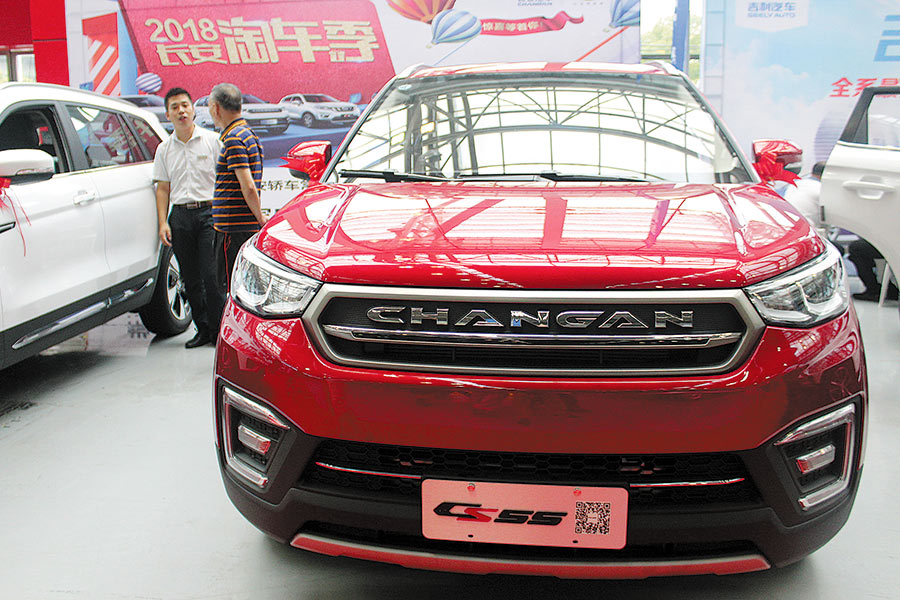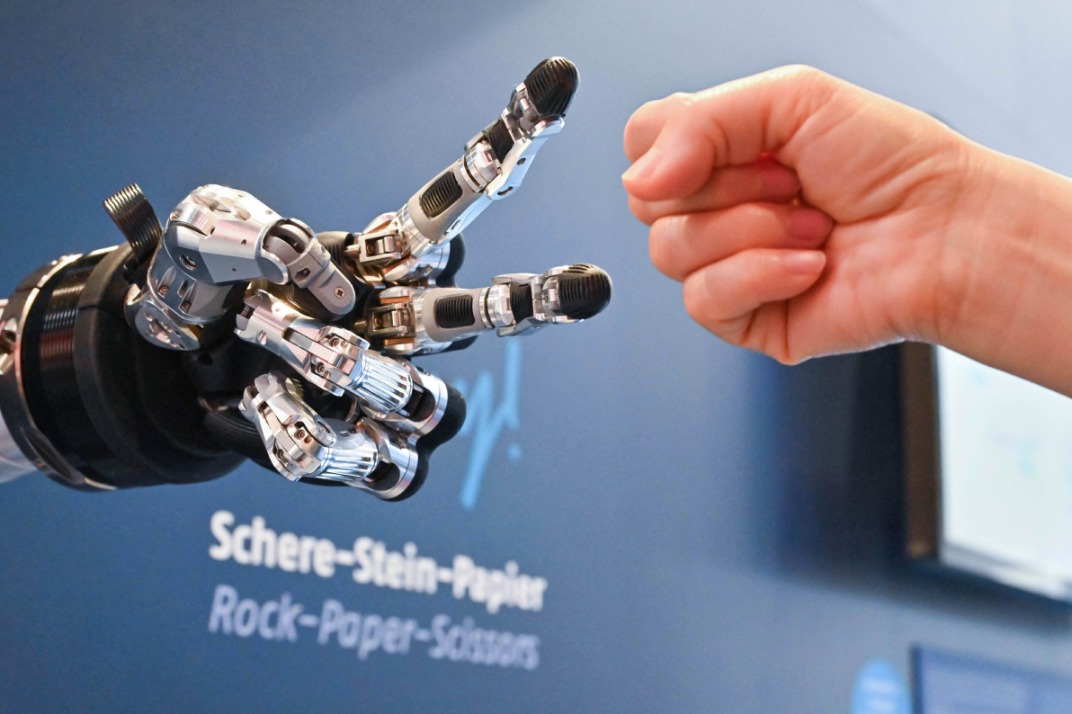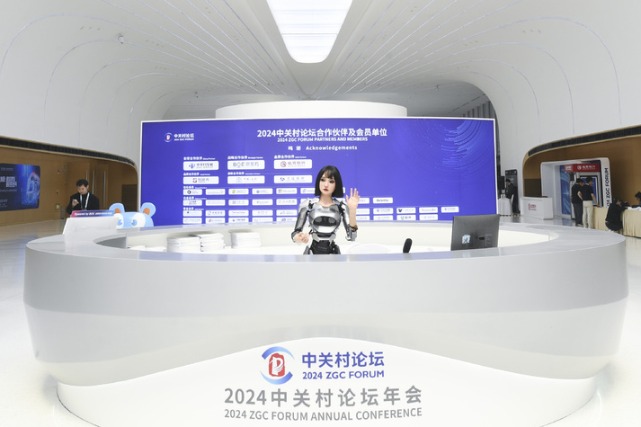Chinese carmakers urged to up game as sales decline


With industry dealing with short-term fall, future prospects remain bright
Officials at China's leading automotive industry association called on the country's carmakers to improve their competitiveness, as they are expected to suffer more than international brands from a downward trend in the world's largest vehicle market.
"The Chinese market has entered into a phase of meager growth since last year, but I think Chinese brands should seize the time to improve themselves," said Shi Jianhua, deputy secretary-general of the China Association of Automobile Manufacturers.
He made the comment at a news conference last week, as the association released China sales of domestic and international carmakers for August.
During the month, Chinese brands' market share in the passenger car market fell by 2.8 percentage points to 38.2 percent, the lowest point in three years.
Few Chinese carmakers survived unscathed from the fall. Changan's sales fell 17.7 percent to 647,000 from January to August; Great Wall Motor's sales slipped 4.6 percent to 505,000 units; Dongfeng Motor was down 18.2 percent and BAIC Motor fell 13.8 percent.
The fall has forced many of the manufacturers to cut the prices of their models to attract customers.
Chen Shihua, an assistant to the CAAM's secretary-general, said because of their lagging behind international marquees in terms of products and brand value, Chinese carmakers are under particular pressure when the market slows down.
The Chinese market has now dropped for two months in a row. Vehicle sales fell 3.8 percent in August to 2.1 million units from a year earlier. It came in the wake of a 4.02 percent fall in July and was the third drop so far this year.
Sales of passenger cars in the country as a whole fell 4.6 percent in August, while those from the Chinese makers tumbled 11.1 percent in the same period.
In particular, the SUV sector, which had been the engine of Chinese carmakers' growth over the past few years, slumped 14 percent in August from the same month last year.
Xu Haidong, another assistant to the CAAM's secretary-general, said the decline in the two months is the result of a combination of factors, including slower overall economic growth and stock market declines.
"These have dented consumer confidence, although there is little fundamental change in the automotive market," Xu said.
Total vehicle sales in the first eight months of the year stood at 18.1 million, up 3.5 percent from the same period last year, according to the association. It has maintained its estimate of 3 percent growth for the whole year, made at the start of 2018.
And Xu is optimistic about the future, saying there is no doubt about the upward trend in the decade to come.
"As you can see, many international carmakers from Toyota to BMW are expanding their production capacity here in China."
Commercial vehicles are offering some comfort to the market. With 1.1 percent growth in August, their sales in the first eight months of the year reached 2.9 million, up 8.7 percent year-on-year.
New energy vehicles sales are cruising at a high speed. That sector, which consists of electric cars and plug-in hybrids, reached sales of 101,000 units in August, up 49.5 percent from the same month last year.
The growth rate from January to August stood at 88 percent, bringing sales in the eight-month period to 601,000 units, even though the Chinese government raised the threshold of its financial stimulus for such vehicles from early June.
The association expects sales to exceed 1 million this year, but their volume is still very small in the overall market, accounting for around 3 percent of the total.
Shi said the percentage is expected to reach 15 percent by around 2025, but he added that the competition will be brutally fierce.
So far, 16 startups in China have won licenses to produce and sell new energy vehicles. According to the National Business Daily newspaper, their designed annual capacities - combined with those from traditional carmakers - will total more than 20 million by 2020, around 10 times the central government's goal for the sector.
"We don't have a market big enough for all of them, so the competition will be unprecedentedly cruel, and some of them will pull out," Shi said.




































